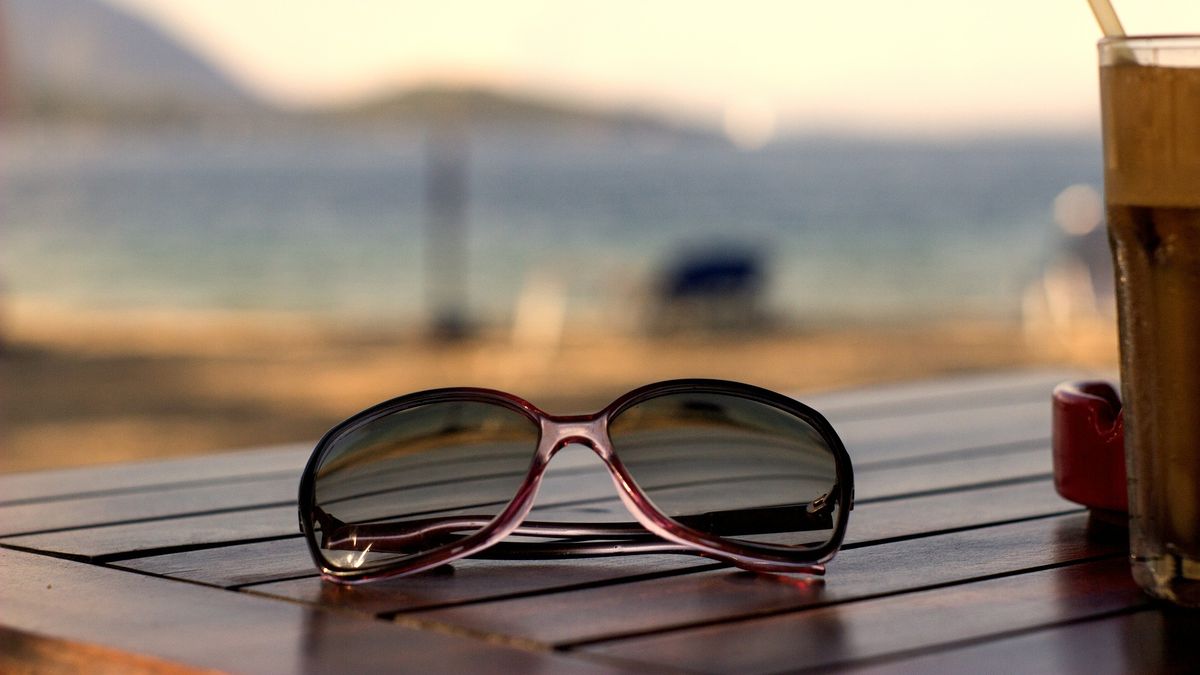As the pupil “enlarges in dark conditions”, this also occurs when “dark glasses” are placed in front of it, such as sunglasses, with the consequence that “more ultraviolet rays will be entering, and if the filters (ultraviolet of the glass ) are of poor quality and fail to filter the light” what will happen is that “the greater the number of rays and the greater the damage to the macula cell.”
“The macula, that is, that region of the eye responsible for discriminating shapes and colors, fulfills a certain number of photosensitive processes and the different ultraviolet waves that emanate from the sun can generate direct damage to the cellular structure (of the macula), which we know as solar maculopathy, which is the first injury caused by this type of lens,” he said.
The specialist explained that “The use of low-quality sunglasses can cause headaches, vision of halos or lights, prismatic effect or vision distortion.”
“To be of good quality, it does not necessarily have to be an expensive lens. One way to ensure quality control is to buy them in places authorized for this purpose, not on the street or in businesses selling generic merchandise,” he said.
In addition, sunglasses can incorporate “the graduation of lenses that the person normally wears” due to their diagnosis of myopia, astigmatism or hyperopia “helping to improve visual quality”; but also contain low, medium or high level filters “according to their ability to absorb disturbing light.”
“There are different grades of ultraviolet filters for different categories of sunlight exposure because exposure in a city, on a beach, or even in snow is not the same,” he added.
Using an inappropriate filter for the activity carried out can cause vision difficulties, as occurs when using glasses with a high light filter to drive at night.
“Also, if the glasses of those who are in the snow have a low absorption filter, they can cause keratitis, cataracts or retinal damage,” says Basbus.
Eye color is also a variable to take into account when choosing sunglasses.
“When choosing our sunglasses, it is important to take into account the color of our eyes, whether they are lighter or darker. It will also depend a lot on the activity that we are developing and, of course, if there were to be any ocular pathology”, he said.
“For example, if we have lighter eyes, we should use lenses of a darker shade so that they can better filter the light. Sepia color filters are usually a good option for both light and dark eyes since they manage to highlight contrasts very well,” he added.
The main tips to correctly choose sunglasses are: always consult an ophthalmologist first, do not buy them on the street or in generic merchandise stores, associate sunglasses with the graduation that is normally used, use the appropriate filter for the activity performed and bear in mind that an inadequate eyeglass can cause keratitis, cataracts and retinal damage.
Source From: Ambito
David William is a talented author who has made a name for himself in the world of writing. He is a professional author who writes on a wide range of topics, from general interest to opinion news. David is currently working as a writer at 24 hours worlds where he brings his unique perspective and in-depth research to his articles, making them both informative and engaging.




